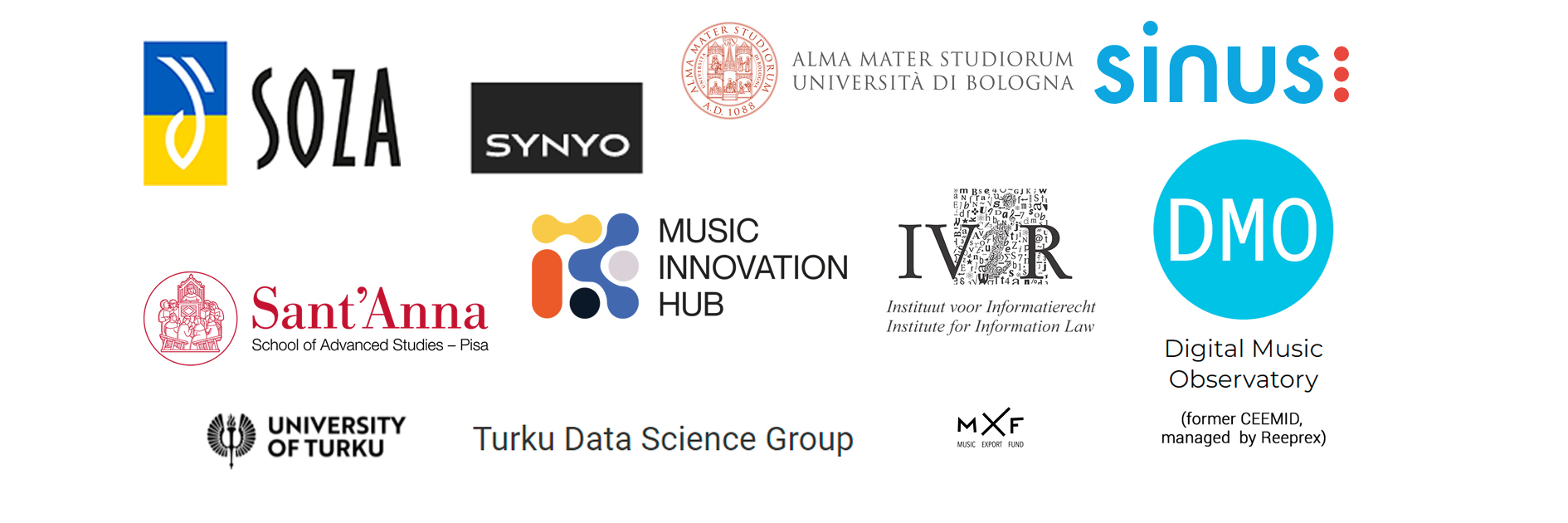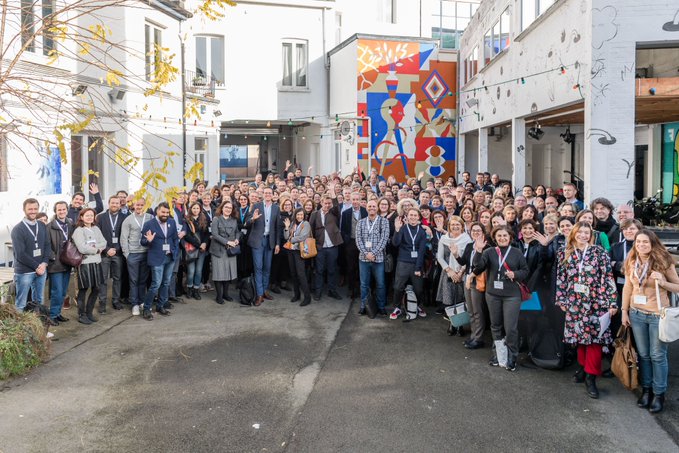Horizon Europe Consortium
We are looking for end-users and dissemination partners to test our data and visualization products

The OpenMusE Consortium brings together music industry stakeholders and researchers from 12 European countries. Our partners represent the diversity of the industry, as well as the shared need to find financially, socially, and environmentally sustainable policy and business models in multiple, sometimes-fragmented streams (e.g., live music, composers/publishers, and recordings with producers and performers).
Good policies require supporting evidence, and good business planning and copyright exploitation require high-quality data. OpenMusE will provide such data through novel, open-source tools that leverage automation to enable transfer to nearly any European market. We will disseminate our data via “live policy documents” and visualisations hosted on our Open Music Observatory, which automatically update when data sources are refreshed. This will set a concrete precedent and a clear path towards a more competitive, fair, and sustainable European music ecosystem.
We hope to get funding from the Horizon Europe HORIZON-RIA HORIZON Research and Innovation Action Research and innovation on cultural heritage and CCIs - 2022 (HORIZON-CL2-2022-HERITAGE-01) Towards a competitive, fair and sustainable European music ecosystem with our competitive tender bid.
Our aim is to partially fill 41/45 identified European data gaps within the Music Moves Europe framework. (See our data coverage below.)
We are looking for end-users and dissemination partners to help us define the European music industry’s data needs, help us collect the data, and review our work in the context of the Horizon Europe call Towards a competitive, fair and sustainable European music ecosystem.
Data that we can offer
By providing continually updated data on five industry pillars – innovation, music and society, music economy, music diversity and circulation, and music policy – we will accurately capture the economic and social value created by the sector, as well as providing stakeholders with data-driven means of maximizing this value.
- For copyright and neighbouring rights-holders and their organizations: Value of music, euro value of the value gap, private copying, privacy—we have data and make estimates with all known music value estimation techniques.
- For live music organizations: Pan-European audience surveys; demographic comparisons of all European audiences; attendance predictions, attendance profiling.
- For granting authorities: we have the world’s largest survey-based dataset on how musicians work and live; we create ex ante needs assessment and grants evaluation indicators and ex-post grant evaluation indicators.
- For labels and music publishers: we make big data understandable; we create price and volume indexes of streaming markets; we tell you about price developments and selection probabilities in different cities and countries; we understand the biases of the Spotify and YouTube algorithms; and we measure (meta)data problems and offer scalable solutions.
- For music export offices: we measure domestic and foreign market shares in streaming; we create actionable key performance indicators; and we do geographical targeting.
Open collaboration
Our project is based on open collaboration. Our proposal, if funded, will provide us with resources to supply further music businesses, music civil society organizations and researchers with high-quality data (during the duration of the project for free.) We are already looking for interested parties to put our data and research projects into use and validate their usability and quality in real-life policy or business development scenarios.
